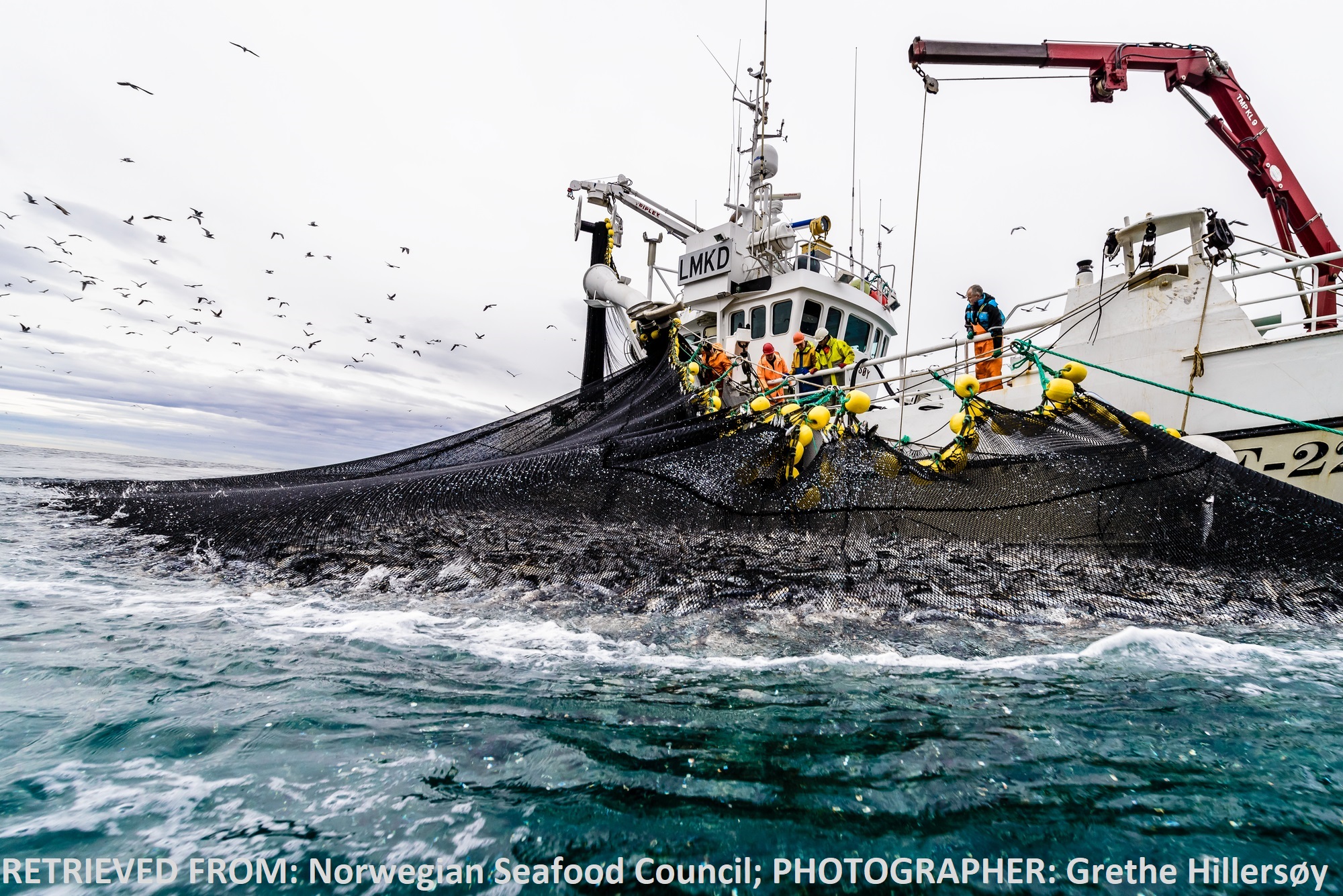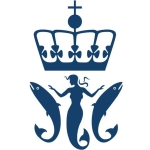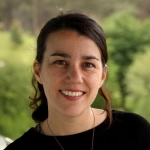How can fisheries contribute more to a sustainable future?

The ocean contributes with only 2% of human food and 6% of dietary protein, despite harbouring half the global primary production. The relatively low contribution has been used to justify that food should mainly be produced on land, while sea food production should be reduced and the ocean protected. This project takes a step back and considers seafood as part of the global food system. Together with key stakeholders, the aim is to reimagine the role of fisheries based on the principles of sustainability rather than on current practices and beliefs. How would fisheries look like if the UN’s 2030 Agenda for Sustainable Development, the Paris Agreement on Climate Change, and the Convention on Biological Diversity were to define the objective of fisheries as maximizing global food production while minimizing ecological and climate footprint?
About this project
This project in funded by the Research Council of Norway, as a Collaborative Project to Meet Societal and Industry-related Challenges within the thematic area Sustainable Food Systems. The project is interdisciplinary across biological oceanography, marine ecology, and psychology, with strong involvement of the seafood industry (Fiskebåt), a conservationist NGO (Nature and Youth), and Norway’s government agency advising and implementing seafood policy (Directorate of Fisheries). The project duration is four years starting from November 2021.
Aims and objectives

In this project we have the following aims:
1: Use food systems analysis of fisheries as embedded within marine ecology to find ways fisheries can produce more food at reduced climate impact.
2: Compare fisheries with other food systems to identify where seafood may alleviate global trade-offs between planetary boundaries.
3: Measure and analyse how values, psychological mechanisms, and ethics may foster action and a bottom-up and fact-based transition towards sustainability.
More specifically, the project will model and analyse increased harvesting of small pelagics and critically assess impacts on biodiversity, revisit total ocean productivity by modelling primary production with inclusion of the microbial loop, improve trophic level theory, measure values and beliefs of citizens regarding nature and food production, analyse the psychological mechanisms of revising one’s values, and integrate everything in a food systems comparison across land and sea to identify how fisheries realistically can contribute more to global sustainability.
News
 Pelagic fish to feed or food?
Pelagic fish to feed or food?
Gabriella Ljungström was invited to hold a presentation about landings in pelagic fisheries for direct consumption versus fish meal and oil at Fiskebåt Sør’s annual meeting in Bergen.
[4 December 2024]
 Brexit Impacted the Mackerel Fishing Fleet’s Carbon Footprint
Brexit Impacted the Mackerel Fishing Fleet’s Carbon Footprint
In a study published today in Marine Policy, TEG researchers have unveiled striking evidence that management decisions such as spatial restrictions of fisheries can increase greenhouse gas emissions. The study sheds light on the unforeseen consequences of policy changes on fishing fleets and their carbon footprint.
[5 February 2024]
 Meeting report: Havforskarmøtet 2023
Meeting report: Havforskarmøtet 2023
At Runde Miljøsenter, around 50 participants gathered to attend this year’s Havforskarmøte (The annual meeting of The Norwegian Association for Ocean Researchers) November 20-22. The theme was Food from the ocean and attracted attendance from wide range of fields.
[13 December 2023]
 Norway might rely on imported meats, but there is plenty of seafood!
Norway might rely on imported meats, but there is plenty of seafood!
In Bergens Tidende today, Dag Aksnes criticizes the authorities for forgetting Norway’s impressive seafood industry in its strategy for food security in times of crisis. Scaling up Norway’s meat industry to prepare for crisis is not sustainable, eating the seafood already produced is smarter and greener, accordign to Aksnes. If anything, meat production should be scaled down to free farmland for grain, vegetables, and fruit where possible.
[25 April 2023]
Project team
 Project leader: Katja Enberg
Project leader: Katja EnbergProfessor
My main interest is sustainable fisheries, including the effects of fisheries on genetic and phenotypic traits as well as dynamics of the harvested populations and ecosystems. I am keen on finding sustainable solutions for using our natural resources for feeding the growing human population.
 PhD research fellow: Anita Stene Løtvedt
PhD research fellow: Anita Stene LøtvedtPhD Student
I am an applied mathematician who is especially interested in environmental and dynamical modelling, as well as sensitivity analysis. My PhD project "The Effect of Water Column Dynamics on the Microbial Food Web and Transfer to Higher Trophic Levels" is a part of the project "How can fisheries contribute to a more sustainable future?".
 PhD research fellow: Nienke Böhm
PhD research fellow: Nienke BöhmPhD student at Department of Psychosocial Science, University of Bergen
With a background in social psychology, Nienke will explore what the important drivers are of sustainable seafood consumption, more specifically the role of emotions, values, and motives.
 NGO: Nature and Youth
NGO: Nature and YouthNon-governmental organization based in Oslo, Norway
Nature and Youth (Natur og Ungdom) is Norway’s largest environmentalist youth organization with 8000 members and 60 local groups with focus on seeing the local challenges in a global context and concentrating on solutions rather than problems.
 Industry: Fiskebåt
Industry: FiskebåtOrganization for Norway's ocean-going fishing fleet
Fiskebåt is an interest- and employers' organization for the majority of the Norwegian ocean-going fishing fleet working on national and global level. The member vessels include purse seiners for pelagic species, seiners and trawler for cod, net- and longline vessels as well as shrimp and industrial trawlers.
 Resource Management: Norwegian Directorate of Fisheries
Resource Management: Norwegian Directorate of FisheriesNorway's governmental branch for management of marine living resources
The Norwegian Directorate of Fisheries is the government's top advisory and executive body in fisheries management in Norway, providing professional input to the policy making process with analyses, statistics and advice, legislature and regulative work and regulation planning development.
 PhD supervisor: Dag L. Aksnes
PhD supervisor: Dag L. AksnesProfessor Emeritus
Two of my current research questions are about mesopelagic fishes and their potential role in carbon sequestration and about effects of increased terrestrial greening on marine ecosystems. I am also engaged in science advise on how to achieve more sustainable food and feed production.
 PhD cosupervisor: Gisela Böhm
PhD cosupervisor: Gisela BöhmProfessor at Department of Psychosocial Science, University of Bergen
Gisela Böhm is an expert in risk perception and decision-making in the context of environmental concerns such as climate change. Her research focus is on the interplay between risk, ethics, and emotion in responses to such risks.
 PhD supervisor: Rouven Doran
PhD supervisor: Rouven DoranAssociate Professor at Department of Psychosocial Science, University of Bergen
Rouven Doran is an expert in climate psychology and works with social influence, sustainable tourism, sustainable consumption, and perceptions about climate change.
 Christian Jørgensen
Christian JørgensenProfessor (Group Leader)
I work with adaptation as a tool to build models that scale mechanisms at the individual level to population-level patterns and evolutionary outcomes. Topics of interest include mating systems, fishing-induced evolution, life history theory, and algorithms for modelling evolution.
 Tom J. Langbehn
Tom J. LangbehnResearcher
I am a quantitative ecologist, or "ocean-going modeller," with a broad interest in global change ecology, evolution, and sustainable fisheries. My primary focus lies in the pelagic ecology of high-latitude oceans and the ocean twilight zone, aiming to understand the mechanisms that link individual behaviours, interactions, and life histories of zooplankton and fishes to large-scale patterns in the environment.
 Gabriella Ljungström
Gabriella LjungströmResearcher
I am an evolutionary ecologist with an interest in global change ecology. My research has mainly focused on understanding how environmental changes, and particularly climate change, affect animals that live in seasonal environments. I also have a strong interest in sustainable use of marine resources and work on several topics relevant to the Sustainable Development Goals.
 Collaborator: Agneta Andersson
Collaborator: Agneta AnderssonProfessor at Umeå University, Sweden
Agneta Andersson is an expert on marine microbial ecology. Her careful observations from the Baltic Sea include seasonally resolved datasets that include the bacterial community, which will be key when validating models.
 Collaborator: Sara Hornborg
Collaborator: Sara HornborgResearcher at RISE Research Institutes of Sweden
Sara Hornborg is an expert in life cycle assessment and ecological risk assessment of seafood production systems, both farmed and wild-caught. Her research also includes broader sustainability assessments including the human dimension.
 Collaborator: Marc Mangel
Collaborator: Marc MangelEmeritus Professor at University of California Santa Cruz, currently Research Professor at the Puget Sound Institute, University of Washington, Tacoma, USA
Marc Mangel has worked broadly with ecology, evolution, management, and conservation of marine living resources, using mathematical models, experiments, and field observations to understand organisms and how they interact with each other and the rest of the environment.




